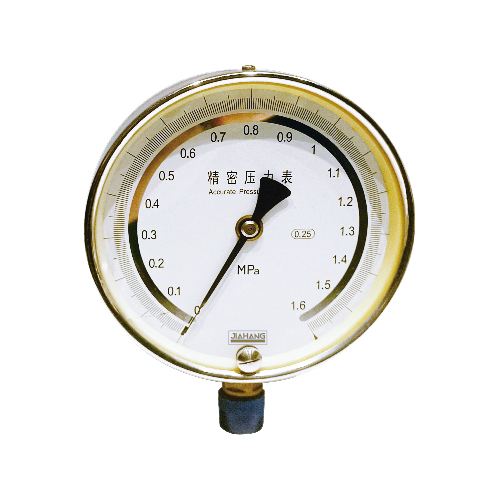
Oct . 21, 2024 23:16 Back to list
Choosing the Right Differential Pressure Gauge for Industrial Applications
Understanding Industrial Differential Pressure Gauges
In the realm of industrial automation and process control, precision and reliability are of utmost importance. One of the crucial instruments that play a significant role in monitoring and controlling various parameters in industrial processes is the differential pressure gauge. This article will delve into what differential pressure gauges are, their working principles, applications, and benefits in industrial settings.
What is a Differential Pressure Gauge?
A differential pressure gauge is an instrument used to measure the difference in pressure between two points in a system. This measurement is essential in many industries, including oil and gas, pharmaceuticals, water treatment, and HVAC systems. These gauges can indicate both positive and negative pressure differences, making them versatile tools for monitoring a variety of applications.
Working Principle
The working principle of a differential pressure gauge is relatively straightforward. It consists of two pressure ports one connected to the higher pressure side and the other to the lower pressure side. Pressure sensors within the gauge detect the pressure applied at these two points. The gauge then calculates and displays the difference between these pressures.
Most differential pressure gauges utilize a mechanical or electronic mechanism to represent pressure differences. Mechanical gauges usually employ a diaphragm, Bourdon tube, or a capsule to sense pressure fluctuations, while electronic gauges often use pressure transducers that convert pressure into an electrical signal for display.
Applications of Differential Pressure Gauges
Differential pressure gauges find an extensive array of applications across various industries. Here are some common uses
1. Filtration Monitoring In filtration processes, differential pressure gauges are critical for monitoring the condition of filters. By measuring the pressure before and after the filter, operators can determine when a filter requires cleaning or replacement, ensuring optimal filtration efficiency.
2. Level Measurement In tanks, differential pressure gauges are employed to measure liquid levels. By knowing the density of the liquid, the difference in pressure from the bottom of the tank to the liquid surface can provide accurate level readings.
industrial differential pressure gauge

3. Air Handling Applications In HVAC systems, these gauges are used to monitor pressure drops across air filters and duct systems, helping to ensure proper airflow and system efficiency.
4. Flow Measurement Differential pressure gauges can be used in conjunction with orifice plates, venturi meters, or flow nozzles to measure the flow of liquids and gases in pipelines based on pressure differences.
5. Process Control In many industrial processes, maintaining a specific pressure difference is crucial for efficient operation. Differential pressure gauges facilitate the regulation of pressure in reactors, distillation columns, and heat exchangers.
Benefits of Using Differential Pressure Gauges
The advantages of employing differential pressure gauges in industrial applications are plentiful
- Precision Differential pressure gauges provide accurate readings, which are essential for maintaining optimal process conditions. Improved accuracy leads to better quality control and operational efficiency.
- Versatility These gauges can be applied in various scenarios, from monitoring liquid levels to assessing airflow in HVAC systems, making them invaluable to a wide range of industrial processes.
- Preventative Maintenance By regularly monitoring pressure differences, operators can anticipate maintenance needs, thereby reducing downtime and saving costs associated with unexpected failures.
- Simplified Troubleshooting Differential pressure measurements can help identify issues in systems, such as blockages or leaks, allowing for quicker responses and resolutions.
Conclusion
In summary, industrial differential pressure gauges are indispensable tools that facilitate precise measurements and control in a variety of applications. Their reliability, versatility, and ability to provide critical data make them essential instruments across multiple industries. As industries continue to pursue increased efficiency and reduced operational costs, the importance of differential pressure gauges is likely to grow, cementing their role as vital components in modern industrial systems. With advancements in technology, future differential pressure gauges may offer even greater accuracy and functionality, further enhancing their contribution to industrial processes.
-
High-Precision Mass Diaphragm Pressure Gauge - Reliable & Durable Solutions
NewsJun.10,2025
-
Explain Diaphragm Pressure Gauge Expert Guide, Top Manufacturers & Quotes
NewsJun.10,2025
-
Affordable Differential Pressure Gauge Prices in China Top Manufacturers
NewsJun.10,2025
-
Reliable Water Fire Extinguisher Pressure Gauges for Safety
NewsJun.10,2025
-
Durable Diaphragm Protection Pressure Gauges Get Quote
NewsJun.09,2025
-
WIKA Differential Pressure Gauge with Switch Reliable Monitoring & Control
NewsJun.09,2025
